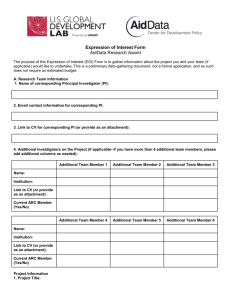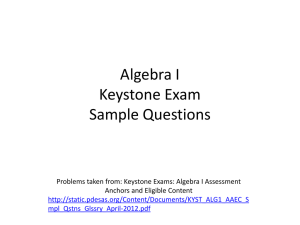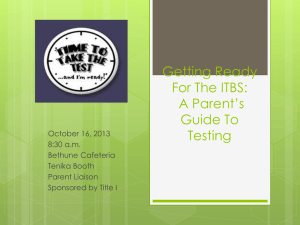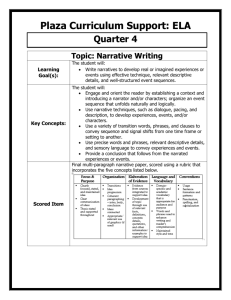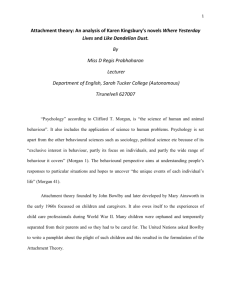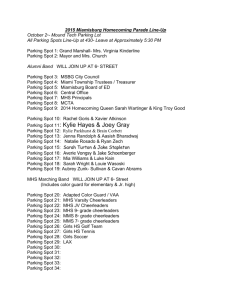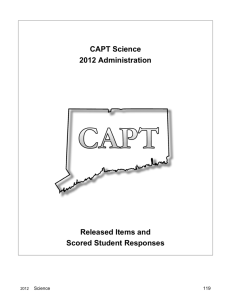AP Psych: Research Methods Practice Test
advertisement
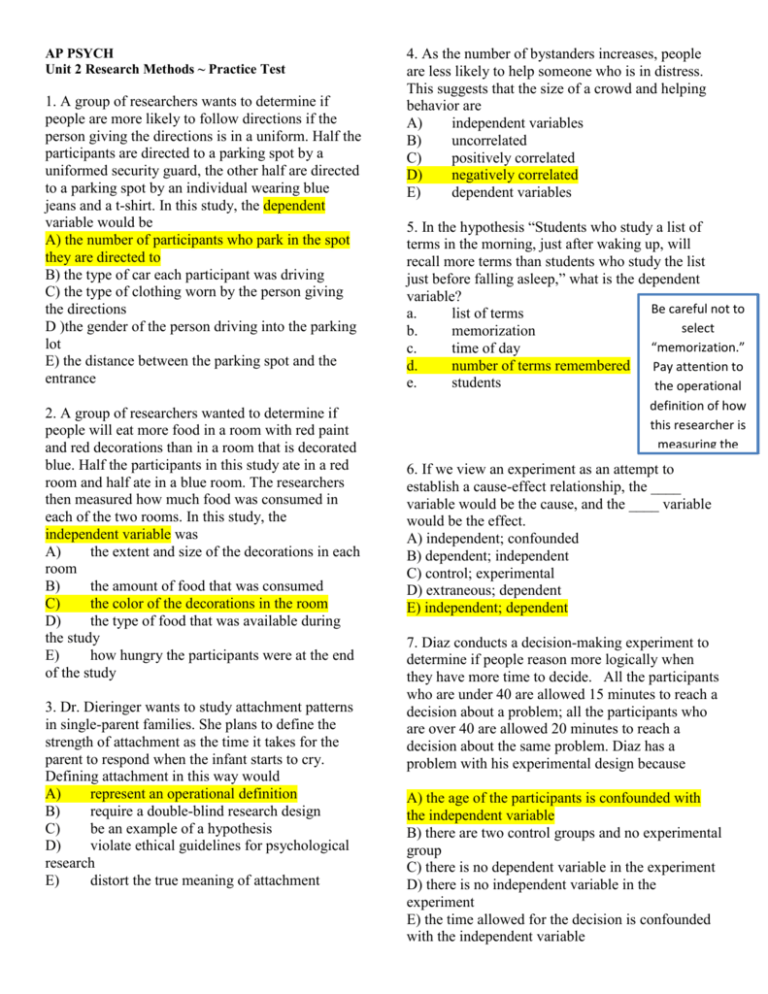
AP PSYCH Unit 2 Research Methods ~ Practice Test 1. A group of researchers wants to determine if people are more likely to follow directions if the person giving the directions is in a uniform. Half the participants are directed to a parking spot by a uniformed security guard, the other half are directed to a parking spot by an individual wearing blue jeans and a t-shirt. In this study, the dependent variable would be A) the number of participants who park in the spot they are directed to B) the type of car each participant was driving C) the type of clothing worn by the person giving the directions D )the gender of the person driving into the parking lot E) the distance between the parking spot and the entrance 2. A group of researchers wanted to determine if people will eat more food in a room with red paint and red decorations than in a room that is decorated blue. Half the participants in this study ate in a red room and half ate in a blue room. The researchers then measured how much food was consumed in each of the two rooms. In this study, the independent variable was A) the extent and size of the decorations in each room B) the amount of food that was consumed C) the color of the decorations in the room D) the type of food that was available during the study E) how hungry the participants were at the end of the study 3. Dr. Dieringer wants to study attachment patterns in single-parent families. She plans to define the strength of attachment as the time it takes for the parent to respond when the infant starts to cry. Defining attachment in this way would A) represent an operational definition B) require a double-blind research design C) be an example of a hypothesis D) violate ethical guidelines for psychological research E) distort the true meaning of attachment 4. As the number of bystanders increases, people are less likely to help someone who is in distress. This suggests that the size of a crowd and helping behavior are A) independent variables B) uncorrelated C) positively correlated D) negatively correlated E) dependent variables 5. In the hypothesis “Students who study a list of terms in the morning, just after waking up, will recall more terms than students who study the list just before falling asleep,” what is the dependent variable? Be careful not to a. list of terms select b. memorization “memorization.” c. time of day d. number of terms remembered Pay attention to e. students the operational definition of how this researcher is measuring the 6. If we view an experiment as an attempt to DV establish a cause-effect relationship, the ____ variable would be the cause, and the ____ variable would be the effect. A) independent; confounded B) dependent; independent C) control; experimental D) extraneous; dependent E) independent; dependent 7. Diaz conducts a decision-making experiment to determine if people reason more logically when they have more time to decide. All the participants who are under 40 are allowed 15 minutes to reach a decision about a problem; all the participants who are over 40 are allowed 20 minutes to reach a decision about the same problem. Diaz has a problem with his experimental design because A) the age of the participants is confounded with the independent variable B) there are two control groups and no experimental group C) there is no dependent variable in the experiment D) there is no independent variable in the experiment E) the time allowed for the decision is confounded with the independent variable 8. A researcher wants to see if a protein-enriched diet will enhance the maze-running performance of rats. One group of rats is fed the high-protein diet for the duration of the study; the other group continues to receive ordinary rat chow. In this experiment, the group of rats that is fed the highprotein diet is ____ group; the group that receives ordinary rat chow is ____ group. A) a dependent variable; a control B) a control; a dependent variable C) an experimental; an experimental D) a control; an experimental E)an experimental; a control 9. Median is to range as ________ is to ________. A) skewed distribution; bar graph B) central tendency; variation C) scatterplot; correlation D) mean; mode E) positive correlation; negative correlation 10.. The typical IQ test has a mean of 100 and a standard deviation of 15. If you scored 115, what percentage of others who have taken the test scored lower than you? A) 34 percent B) 48 percent C) 68 percent D) 84 percent E) 98 percent 11. Joey scored 130 on the WISC. The mean on the WISC is 100 with a standard deviation of 15. What is Joey’s z score and approximately what percentile is he in? A) -2,2nd B) -2, 16th C) 0, 50th D) 2, 90th E) 2, 98th 12. Tammy scored 145 on an IQ test with a mean of 100 and a standard deviation of 15. What is her z score? A) -3 B) -1.5 C) 0 D) +1.5 E) +3
